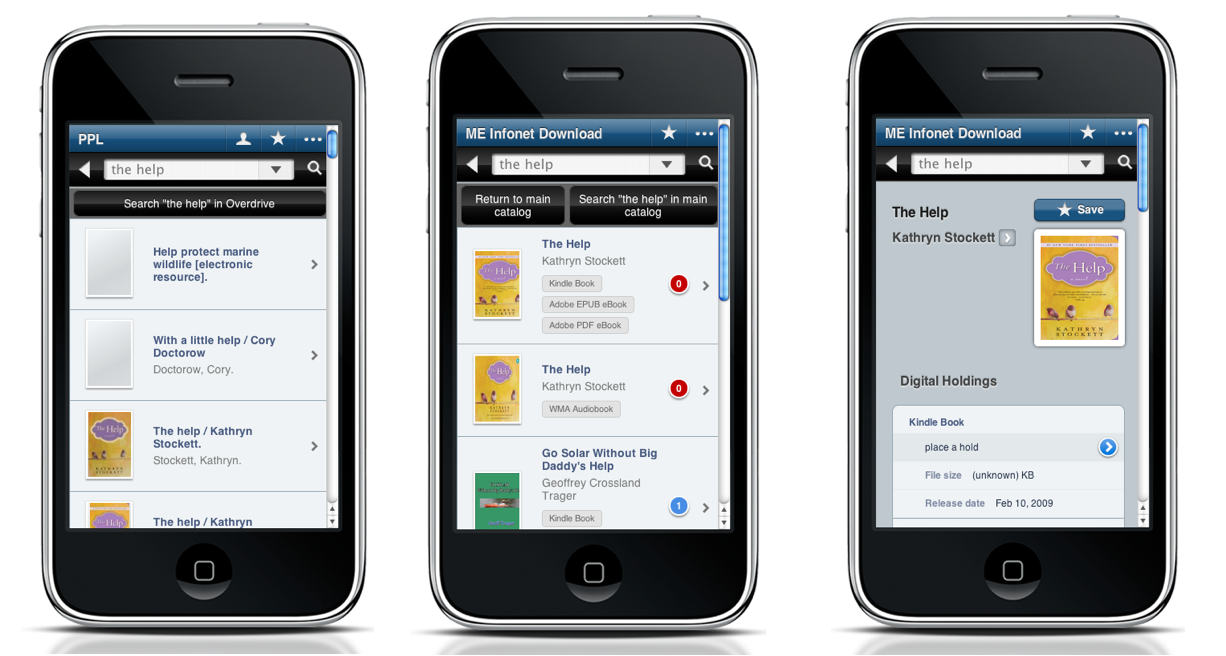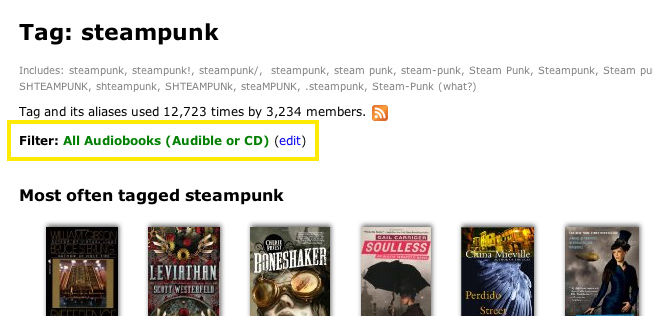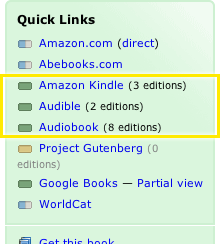We now have several libraries who have installed LibraryThing for Libraries enhancements in their discovery layers!
Enterprise
Check out Mount Laurel Library, with Reviews and Catalog Enhancements (Tags, Similar Books, and Other Editions) in their Enterprise catalog—See Harry Potter and the Order of the Phoneix.
SOPAC
Arlington Heights Memorial Library has enabled Similar books, Reviews, and Lexile measures in their SOPAC catalog—See the record for The Night Circus.
EBSCOhost Discovery Service
Nelson Public Library in New Zealand has our Reviews and Catalog Enhancements (Tags, Similar Books, and Other Editions) working in EBSCOhost Discovery Service—See the record for The help.
VuFind
As we announced last summer, LibraryThing for Libraries also integrates with VuFind!
Learn more
Email me (abby@librarything.com) with questions about any of the LibraryThing for Libraries OPAC enhancements, or our mobile product, Library Anywhere! To subscribe, contact Peder Christensen at Bowker—toll-free at 877-340-2400 or email Peder.Christensen@bowker.com.
We also do weekly webinars to show off both Library Anywhere and all the LibraryThing for Libraries enhancements for your library catalog (Tags, Similar books, Other editions, Series, Awards, Shelf Browse, Reviews, Stack Map, and Lexile measures)! Click here to register. On the Browse Meetings page, search for “LibraryThing” to see a listing of all upcoming webinars.


















 Publishers do things country-by-country. This month we have publishers who can send books to the US, Canada, the UK, Israel, and a whole bunch more. Make sure to check the flags by each book to see if it can be sent to your country.
Publishers do things country-by-country. This month we have publishers who can send books to the US, Canada, the UK, Israel, and a whole bunch more. Make sure to check the flags by each book to see if it can be sent to your country.











































































































